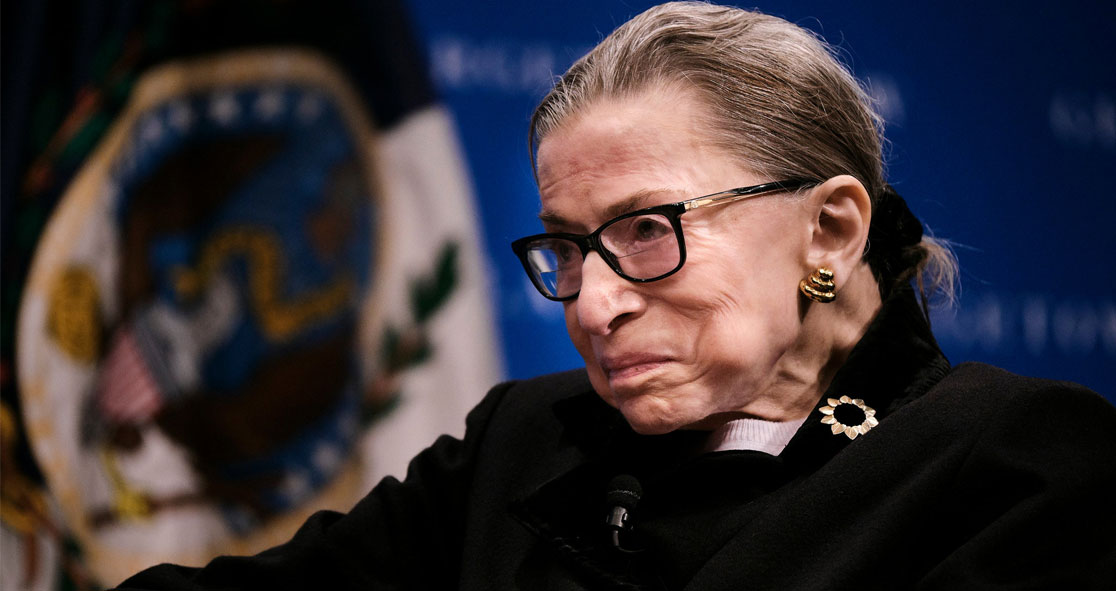U.S. Supreme Court Justice Ruth Bader Ginsburg, the oldest member of the court, died Friday due to pancreatic cancer at the age of 87.
In a statement released from the court, the cause of death was metastatic pancreatic cancer.
Chief Justice John Roberts said, “Our nation has lost a jurist of historic stature. We at the Supreme Court have lost a cherished colleague. Today we mourn, but with confidence that future generations will remember Ruth Bader Ginsburg as we knew her – a tireless and resolute champion of justice.”
The court has planned a private service for Arlington National Cemetery.
Born on March 15, 1933, in Brooklyn, NY, Ginsburg had a sister who died when they were young and she lost her mother to cancer at 17.
She was an advocate for the rights of women and minorities. She received her undergraduate degree from Cornell University and earned her law degree from Columbia Law School.
Ginsburg’s husband, Martin Ginsburg, died of cancer in 2010. She is survived by her children, Jane Ginsburg and James Ginsburg, and several grandchildren.
She weathered several major health issues during more than a quarter-century on the high court.
She survived cancer thrice, facing her most recent troubles in late 2018, when she had to undergo surgery for lung cancer, which was discovered after she broke her ribs in a fall in her chambers.
In January 2020, Ginsburg announced that she was cancer-free. However, in July, she said she was undergoing chemotherapy after she was found to have a lesion on her liver.
Ginsburg experienced her first bout with cancer in 1999 when she underwent treatment for a colon tumor. And 10 years later, during a follow-up exam for colorectal cancer, she was found to have early-stage pancreatic cancer.
In “RBG,” the 2018 documentary about her life, Ginsburg revealed that her run-ins with cancer had given her “an enhanced appreciation of the joys of being alive.”
In 2012, Ginsburg suffered a fall that left her with broken ribs. In 2014, she underwent angioplasty in a major coronary artery.
In 2018, she underwent a pulmonary lobectomy, which forced her to sit out of oral arguments for the first time.
Ginsburg was nominated to the court by then-President Bill Clinton on June 14, 1993. She had not missed a session since she took the post on August 10, 1993.
She has set an example of why adults above 45 should keep up with colon cancer screening tests and with follow-up colonoscopies after getting the disease, according to Dr. Durado Brooks of the American Cancer Society.
Dr. Brooks, who did not treat Ginsburg, said there are a variety of cancer screening tests “that have shown to be very effective at decreasing your risk of developing cancer or finding cancer in its early stages,” when it can be treated successfully.
He added, “You don’t have to wait until you have symptoms [of any cancer].” In early January 2019, her absence on the bench made headlines. She said in “RBG,” “I’ve said many times that I will do this job as long as I can do it full steam,” after she was asked about the calls for her to retire, adding, “and when I can’t, that will be the time I will step down.”





















